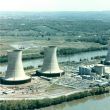Contributions to peace and development, not excessive control
By Kayhan Barzegar, January 1, 2013
Answering the question that this Roundtable poses — How could the policies of the Nuclear Suppliers Group (NSG) be improved to better take into account the needs and perspectives of developing countries? — requires understanding to what extent the NSG has been able to strike a balance between the obligations it imposes on developing nations and the benefits it provides them in return. In other words, do the NSG's policies advance the goals expressed in its guidelines, essentially that nuclear trade should not contribute to proliferation but that international trade and cooperation in the nuclear field should not be unduly hindered? It is no trivial point that the nuclear trade allowed under the Nuclear Non-Proliferation Treaty (NPT) must not be hindered: Such trade is a key element of the nonproliferation regime, and the principles that underlie the regime must not be sacrificed due to the policies of a few countries.
The NSG has taken a number of nonproliferation actions over the decades that have been in line with the objectives of the treaty. But at the same time, the group has imposed constraints on developing countries that only seek to develop peaceful nuclear energy programs for the sake of their sustainable development and economic growth. These constraints, I believe, are not unrelated to the national interests of the United States and France, two countries that enjoy strong commercial positions in the nuclear market and would like to retain those positions.
Overzealousness, discrimination. Electricity demand in developing countries is growing quickly, and this is stimulating interest in nuclear energy. Unfortunately, overzealousness about nonproliferation and global nuclear security — though these concerns are legitimate — is inhibiting nuclear progress in developing countries. Some argue that global expansion of nuclear power is risky because it spreads technologies for making nuclear fuel, something that might give more states the ability to develop nuclear weapons. This argument ignores the very foundations of the treaty. The treaty is designed after all to ensure nonproliferation while at the same time making technology for civilian nuclear power programs widely available. The argument also tends to negate any role for developing countries in the nuclear energy market.
If the guidelines of the NSG had been carefully followed in the past, there would have been little room for discriminatory measures such as imposing excessive restrictions on an NPT signatory like Iran. Nor would the NSG in 2008 have granted an exemption allowing India, which is not a treaty signatory, to participate in nuclear trade. Somewhat similarly, prominent NSG members including the United States have remained largely silent on Israel's nuclear program.
In 1998 the members of the Non-Aligned Movement urged that all signatories to the treaty should "prohibit the transfer of all nuclear-related equipment, information, material and facilities, resources or devices, and the extension of know-how or any kind of assistance in the nuclear, scientific, or technological fields" to Israel, due to its not being a party to the treaty and its not having placed its nuclear activities under full IAEA safeguards. A decade later, the Non-Aligned Movement might have urged the same thing regarding India — but India was granted its waiver. This amounts to nuclear discrimination. The NSG enforces a double standard, focusing too much on proliferation issues in some developing countries while engaging in double standards when it comes to a country like India. This weakens the credibility of the group.
Balance and cooperation. The NSG's main challenge today is deciding how to balance the economic and proliferation aspects of nuclear transfers, all the while without violating its own guidelines or running afoul of its own objectives. It should be noted that developing countries, when they joined the treaty regime, placed great stock in the prospect of benefitting from peaceful nuclear transfers for the sake of their sustainable development and also placed great stock in comprehensive disarmament that would enhance their security. Therefore, the NSG should balance its proliferation focus with increased focus on the other two pillars of the NPT — comprehensive disarmament and the peaceful uses of nuclear energy. The NSG could promote disarmament by providing nuclear weapon states with technical assistance and promoting cooperation among them. Such an initiative would help dispel distrust in developing nations. Today, however, significant suspicion exists that the NSG has promoted the interests of certain Western countries in order to preserve those countries' preponderance of legal, technical, and political power within the NPT regime. Pursuing policies that have this effect can only lead to increased frustration in developing countries, which could ultimately result in the collapse of the NPT.
The NSG should make greater efforts to foster regional cooperation in nuclear energy. Developing countries, many of them reaching the conclusion that sustainable development depends on diversified sources of energy, are increasingly interested in nuclear power. Good examples of this exist in the Middle East. In this region, where political and ideological differences among states inhibit cooperation, the NSG could make a valuable contribution by facilitating nuclear energy cooperation, instead of focusing so intently on proliferation issues. In this way, the Nuclear Suppliers Group could help foster peace and stability in the region.
Topics: Nuclear Energy, Nuclear Weapons
Share: [addthis tool="addthis_inline_share_toolbox"]














